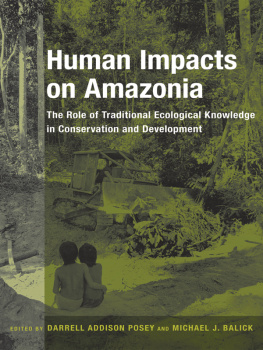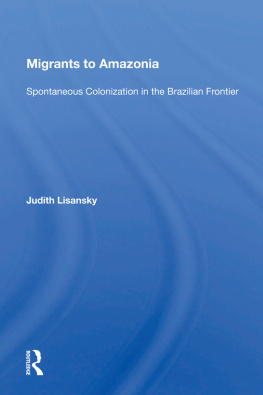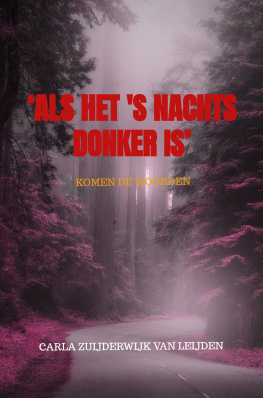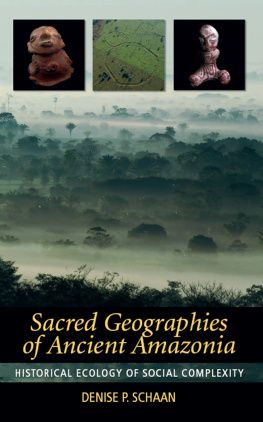A WALK TO THE RIVER
IN AMAZONIA
A WALK TO THE RIVER
IN AMAZONIA
ORDINARY REALITY FOR
THE MEHINAKU INDIANS
Carla Stang
First published in 2009 by
Berghahn Books
www.berghahnbooks.com
2009, 2012 Carla Stang
First paperback edition published in 2012
First ebook edition published in 2012
All rights reserved. Except for the quotation of short passages for the purposes of criticism and review, no part of this book may be reproduced in any form or by any means, electronic or mechanical, including photocopying, recording, or any information storage and retrieval system now known or to be invented, without written permission of the publisher.
Library of Congress Cataloging-in-Publication Data
Stang, Carla
/ Carla Stang.
p. cm.
Includes bibliographical references.
ISBN 978-1-84545-555-2 (hbk) -- ISBN 978-0-85745-155-2 (pbk) -- ISBN 978-1-84545-931-4 (ebk)
1. Mehinacu Indians--Psychology. 2. Mehinacu Indians--Attitudes. 3. Mehinacu Indians--Social conditions. I. Title.
F2520.1.M44S83 2008
155.849839--dc22
2008026237
British Library Cataloguing in Publication Data
A catalogue record for this book is available from the British Library
ISBN 978-0-85745-155-2 (paperback)
ISBN 978-1-84545-931-4 (ebook)
Examine for a moment an ordinary mind on an ordinary day. The mind receives a myriad impressions trivial, fantastic, evanescent, or engraved with the sharpness of steel. From all sides they come, an incessant shower of innumerable atoms....
VIRGINIA WOOLF
The Common Reader
How strange, said Bernard, the willow looks seen together. I was Byron, and the tree was Byrons tree, lachrymose, down-showering, lamenting. Now that we look at the tree together, it has a combined look, each branch distinct, and I will tell you what I feel, under the compulsion of your clarity.
VIRGINIA WOOLF
The Waves
Contents
Figures
Plates
Preface
The way of life written about in this book has been under threat for many years. This situation has reached a critical point. In 2007 the Mehinaku, together with the other peoples of the Xingu, declared their concerns to the Brazilian nation and the international community at large.
OPEN LETTER TO THE BRAZILIAN NATION FROM THE XINGUANO PEOPLES
We, the principal leaders of the Xinguano civilisation, gathered in the Kuikuro village of Ipatse on the 21st of July 2007, want to share with the Brazilian nation the grave situation in the Indigenous Park of the Xingu (PIX). For five hundred years, our thousands of years old civilization has been resisting subjugation wars, slavery, epidemics and land theft. In the last years, the social and environmental irresponsibility in the region of the headwaters of the Xingu river tributaries has been putting our health and the survival of our culture at risk. The rapid and reckless deforestation, the agricultural development, the excessive use of agro-toxics and, lately, dam-building, have been destroying the very core of our subsistence. Water pollution and fish contamination are a threat to our future, because they are essential not only to our physical reproduction but also to our cultural life. We have lived for thousands of years in this basin in a sustainable way and in direct dependence on its aquatic resources.
As legitimate representatives of the Xinguano people, we seek the support of the whole Brazilian nation and of the international community to fight against this new threat. With the advance of the economic frontier, we have already lost a great part of our territory and now, this careless destruction invades the lands we still have. We demand a global management plan for the river Xingu basin, to cover not only the interior of the PIX, but also the whole region of the headwaters. The impending destruction of the basin affects all of us, Indians and non-Indians, and in particular the future generations. We cannot wait for another ten years. By then, the environmental damage will be irreversible. We want immediate action to preserve a heritage that is not only ours, but also belongs to the nation and the whole of mankind.
We specifically demand:
the immediate halting of all dam works in the region of the headwaters;
a moratorium on licences for the installation of new PCHs;
an in-depth study on the quality of the water and fish;
a reforestation plan for the banks of the rivers and their tributaries;
the regaining of the traditional areas excluded from the PIX region;
the recognition and preservation of our sacred places, Sagihengu and Kamukwak, which are found outside the PIX limits.
Acknowledgements
My fieldwork in the Mehinaku community was funded by the Cambridge Commonwealth Trust, Kings College Cambridge, the Richards Fund and a Worts Travel Grant. My time at the University of Cambridge was supported by Kings College, the Cambridge Commonwealth Trust and the Wyse Fund.
I am fortunate to have had Stephen Hugh-Jones as my supervisor, who generous with his incisive, inspiring intelligence and warm and compassionate presence, supported me throughout my research and writing. I am grateful to the Department of Social Anthropology in Cambridge, its staff and students, for the convivial and stimulating environment in which I feel privileged to have been able to pursue this work. I thank Kings College for being a haven; the librarians at the college library for gentle help while I set up camp there for months; Professor Macfarlane for the deep love of anthropology he instils.
My deepest gratitude to Jadran Mimica, whose greatness of vision, learning and heart has been from the beginning, and is ever, an inspiration of the best anthropology, not to mention a person, can be. Also, my thanks to Michael Jackson, who during my undergraduate degree at the University of Sydney graced the year that he taught me with the humane and profound insight of his ethnography, which I have aspired to ever since. Also, thank you to Stephen, Jadran and Michael, who were instrumental to getting this book published. I am grateful to the people at Berghahn Books, especially Marion Berghahn for believing in this work and for the insights from conversation with her that have inspired me since, Ann Przyzycki for her warm patience and the intelligent clarity of her comments, and the terrific Melissa Spinelli. In Brazil, the Cohens took me into their family without hesitation; and without Evelyn, minha me Brasileira, who knows what would have become of me. The people at the Museu Nacional in Rio de Janeiro immediately brought me into their fold and helped me begin the path toward fieldwork, particularly Aparecida Vilaa, with her practical help and kindnesses, Carlos Fausto, who acted as my Brazilian supervisor, and Cesar Gordon. Also thanks to Cecilia McCallum and Elizabeth Ewart who gave me good and kind pre-fieldwork advice. In the last stage of the preparation of the manuscript I am grateful to the inspirational Michael Taussig, his comments and course, the Art of Fieldwork, which together helped me finish this book and made me want to write others.





